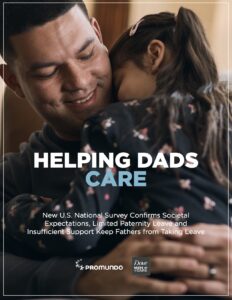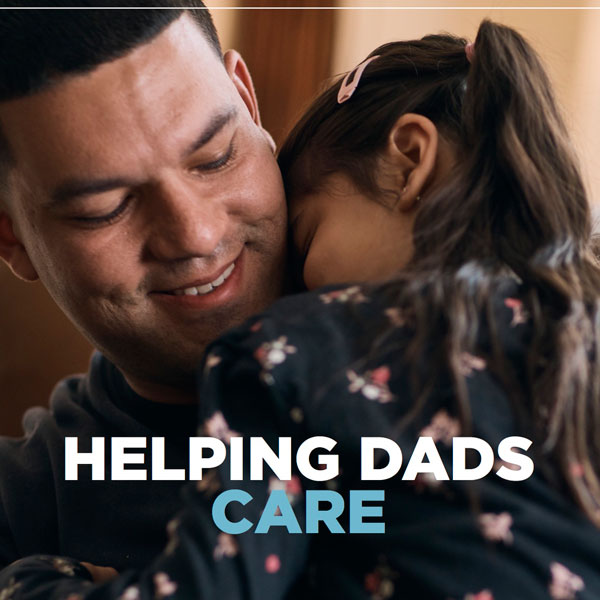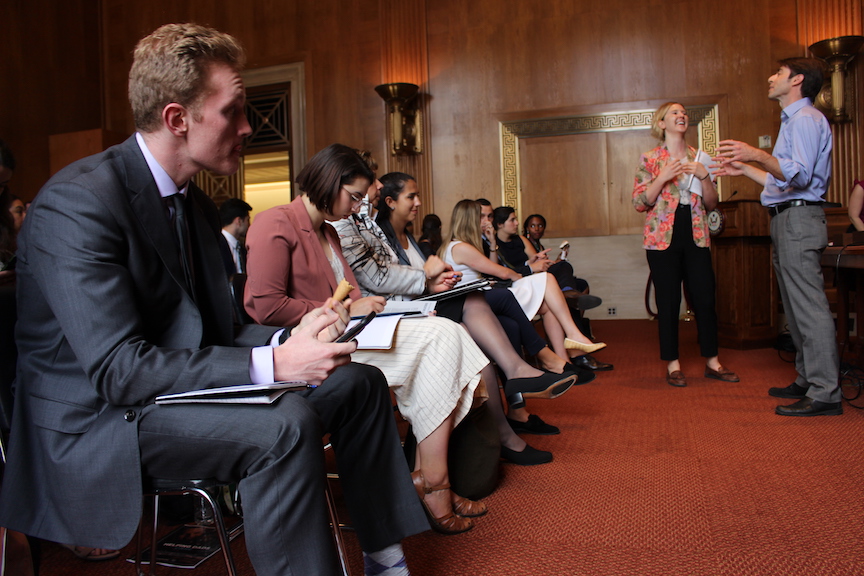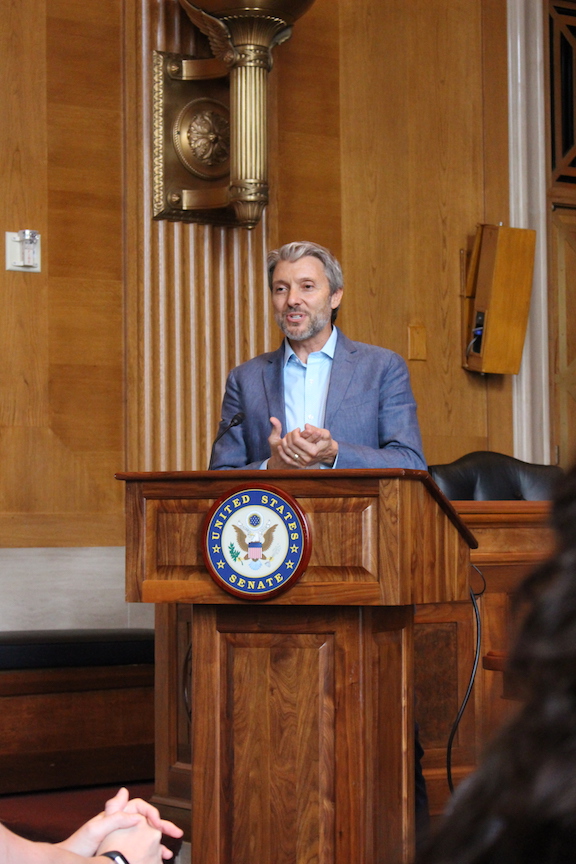Equimundo and Dove Men+Care partnered to carry out a pioneering study on what keeps fathers from taking parental leave and being the fully engaged caregivers they want to be.
The results – released in the Helping Dads Care report – confirm first and foremost that fathers want to be involved. The research was shared at a Congressional Briefing at the United States Senate on July 12, 2018 co-hosted by the National Partnerships for Women & Families.
Why this study?
 Over the past 30 years, fathers in the United States have increased the time they spend with their children by nearly a third. More and more, both men and women want to equally share the care of children. Still, men are doing less caregiving than women.
Over the past 30 years, fathers in the United States have increased the time they spend with their children by nearly a third. More and more, both men and women want to equally share the care of children. Still, men are doing less caregiving than women.
Why? In part, it’s because fathers, like mothers and other caregivers, need support to care for their children, including time off from work after the birth or adoption of a child. The United States continues to be the only advanced economy in the world that does not provide nationally guaranteed paid parental leave.
Even unpaid leave is hard to come by in the United States. The latest figures show that fewer than 40% of workers, men and women, are eligible for and can afford to use unpaid leave under the Family and Medical Leave Act. In terms of paid parental leave, access is lower still, with only 15% of male and female workers able to access paid leave through their employer.
However, even when women and men have access to paid leave, many parents – particularly fathers – don’t use it all. To explore this critical issue impacting men, women, and future generations, Equimundo and Dove Men+Care carried out an online survey of men and women aged 25 to 45, including 1,088 men (83% of whom were fathers) and 626 women (64% of whom were mothers).
Results:
The study found that 73% of dads agreed there was little workplace support for fathers, and one in five men were afraid of losing their job if they took the full amount of paternity leave offered to them. Of note, 69% of fathers confirmed they would change jobs to spend more time with their children. Results also showed that men reported being more satisfied with their lives, including their sex lives, when they can be the caregivers they want to be.
What holds them back? Dads worry what others will think if they prioritize their children over their work, and they worry that their income, and their family’s income, will suffer if they take parental leave. Additionally, two traditional stereotypes are still significant barriers: that men should be the primary breadwinners and that women should be the primary caregivers for children.
Too few workplaces provide paid leave for fathers, and even when they do, too few fathers take their full leave because they worry about what others think about them, particularly at work.
Additional key insights:
- Women and men say that caring for their children matters to them equally and that they would go to the same lengths to have time with their children.
- Fathers are more likely to take paternity leave if their workplaces offer flexible working arrangements, if their own parents support them in taking it, and if they have more control over their own work lives.
- Men and women underestimate their managers’ support for paternity leave.
- Men and women doubt the benefits of extended parental leave for fathers, especially those benefits that are less intuitive.
- Both men and women tend to believe they are better at their traditional roles than the other gender, but equal to the other gender in non-traditional roles.
- Both fathers and mothers say they face challenges to being fully involved parents due to pressure at work, but fathers perceive even greater barriers.
The study confirms that men want to be involved caregivers. Outdated social norms and a lack of support from workplaces, as well as other social touch points, are all too often barriers to men’s equitable participation in care work. Supporting fathers in accessing paternity leave will help men be the parents they want to be and will contribute to advancing gender equality both in the home and in society more broadly, further empowering women across different domains of their lives.
The Helping Dads Care report is available online here.
View photos from the Congressional Briefing here:







